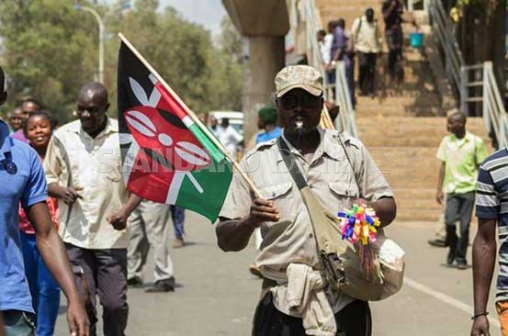×
The Standard e-Paper
Smart Minds Choose Us

Top Kibera Opposition mobiliser Ochieng Jera is among thousands of National Super Alliance (NASA) supporters who will pour out on the streets on Thursday in anti-IEBC protests. He expects to dodge police bullets and return home alive.
On Monday last week, the former ODM chairman for Kibra branch rescued four Opposition protestors who had been run over by a car in Nairobi. This, he said, will not deter him from making his voice heard.